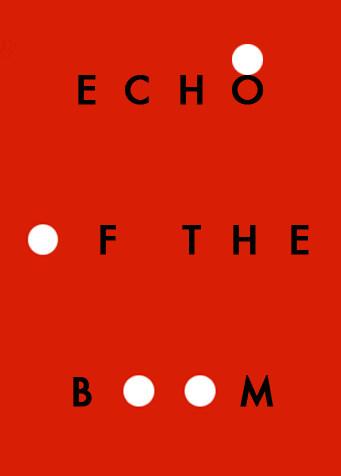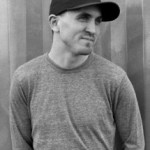
By Maxwell Neely-Cohen
456 pages
Publisher: Rare Bird Press, 2014
It speaks to the abilities of Maxwell Neely-Cohen that the four teenage harbingers of the apocalypse at the center of his debut novel manage not only to gain, but also maintain, the reader’s empathy and sympathy. This is doubly impressive considering that at face value, none of these characters fit a type that the average reader is used to sympathizing with: Efram is the orphaned son of a disgraced wall street billionaire, a kind of Anti-Christ in the skin of Ferris Bueller; Chloe is the J. Edgar Hoover of her Washington D.C. public school, collecting dirt on her fellow students and spreading malicious gossip not for her own gain; Molly is the violent and furious daughter of a sad-sack prepper, a nascent warrior who it turns out is far more capable a survivalist than her paranoid father; and Steven is the brilliant, beautiful death-obsessed son of a globe-trotting British ex-spy turned independent contractor, who comes of age in the green zones of the world’s war torn countries, the better to gain a chilling understanding of how the systems of control and anarchy actually operate.
Together, these children who were “all born after the fall of the wall but before the fall of the towers” comprise the four horsemen of revelation: Conquest, War, Famine and Death. They are not individually responsible for the end of the world, they are merely the witnesses and representation of the factors that will soon usher it in.
Echo of the Boom, with its recurring references to all manners of technological destruction, has already received numerous comparisons to the work of Thomas Pynchon, specifically, his magnum-opus Gravity’s Rainbow. These are apt comparisons, though the novel reads more like Don DeLillo, who was always exceptionally sober- eyed, even when writing humorously about the darker forces of the world. And even closer still, is the fiction of David Foster Wallace. With its coming-of-age storyline, apocalyptic and subtle science-fiction qualities, and recurring war game motifs, the famous Eschaton scene from Infinite Jest is called to mind on multiple occasions. Specifically, that moment in the novel when a group of preconscious tennis students engage in a complex and chilling game of nuclear attrition using PC’s and tennis balls. It would not be surprising if Neely-Cohen was inspired to write this book based on that one scene.
The formalist and stylistic similarities of Infinite Jest in particular are easy enough to note in Echo of the Boom or Jennifer Egan’s Pulitzer winning A Visit From The Goon Squad, but the parallel goes deeper. In a 2001 article for The Guardian, leading literary critic James Wood proclaimed what he dubbed the ‘hysterical realist’ novel—the post-modern province of Pynchon, Delillo, Rushdie and Wallace—dead. In the wake of 9/11, no one would take seriously books such as Infinite Jest, with it’s wheel-chair bound Quebecian-separatist cells, or Mao II, where Delillo asserts that terrorists have supplanted novelists as the biggest influences to culture. Post 9/11, such imaginings and ideas were too offensively absurd in comparison to the large-scale tragedy US society had recently endured.
Times have changed again. With 9/11 almost 13 years behind us, Wood’s thesis has been proven wrong. The hysterical realist novel, exemplified by Echo of the Boom is in many ways more realistic than the so-called social realism genre that Wood had proselytized. The world—or at least the America—that emerged from the rubble of September 11th, with it’s new neurotics in the form of Truthers, Birthers and Preppers; The Tea Party with their silly Uncle Sam Outfits, Occupy Wall Street and Anon with their Guy Fawks Masks; drones dropping bombs on the other side of the world on behalf of the CIA and the ready supply of consumer goods available at your front door and on behalf of Amazon; fit the mold of the very novels that Wood disparaged.
If Echo of the Boom is representative of the hysterical-realist novel of today, the main quality that differentiates it from its forebears is its treatment of humor. Echo of the Boom is funny, but its not made from the same satire of Delillo or Wallace. This may be because satire hasn’t been able to catch up to how outlandish culture and society has become. How does one lampoon the paranoia of a culture where its paranoiacs actually believe the President to be a reptilian? How do you ridicule the heroes of youth culture like Miley Cyrus (who is quoted in one of Echo’s many epigraphs) when the publicity stunts they are willing to engage in to garner and maintain press makes them impervious to further ridicule? And how do you make fun of the class system in a country where the disparity between the 1% and the 99% has grown so large that aspirations which once seemed like the empty pursuit of materialism now seem like the desperate and fantastical retreat of a society coming bitterly around to the conclusion that the American Dream is no more real than any other dream.







